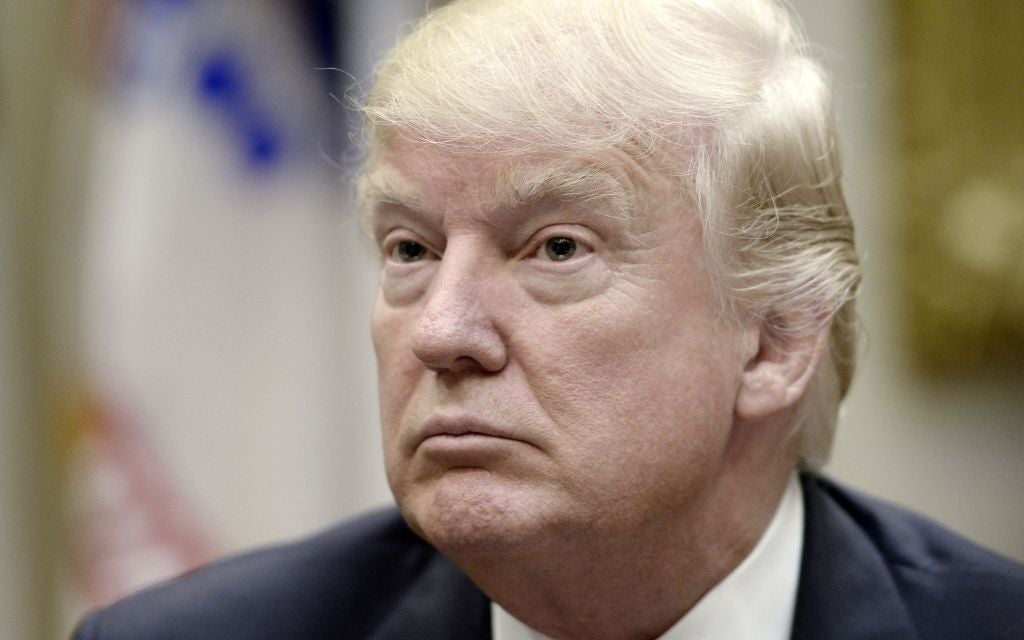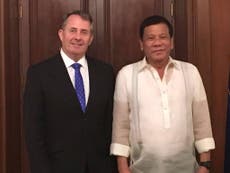He'll never admit it, but Donald Trump knows he needs Xi Jinping
Both presidents want an open, co-operative world economy. The question facing the two leaders in Mar-a-Lago is whether they can manage the tensions between the two nations to achieve that aim


It is not a marriage made in heaven. It would be hard to imagine two more different characters than the presidents of the world’s largest and second largest economies, who meet on Thursday and Friday in Mar-a-Lago, Florida.
Donald Trump is not a professional politician – indeed, he is not one at all, for he has switched party support several times. He is untried, impulsive, contradicts himself, and has yet to learn how to manipulate the domestic political system to achieve his aims.
Xi Jinping, by contrast, has spent 40 years climbing the political ladder. He is hugely experienced. Every statement is carefully calculated, and the fact that he has beaten his rivals to reach the pinnacle of the Chinese communist party is testimony of his ability to work the system.
The two leaders do, however, have something in common: they are both nationalists. President Trump wants to make America great again. President Xi wants China to re-establish its position as the world’s largest economy, which it was until about 150 years ago.
In reality, though, both leaders will easily achieve their aims. The US is indeed great, if you consider not just its military and intellectual dominance of the world, but the way in which its giant high-tech companies have pioneered the communications revolution. China will, under almost any circumstances, become the world’s largest economy within a generation. It depends a bit on how you measure the size of the Chinese and US economies but the tipping point looks somewhere between 10 and 20 years away.
But each needs the other. Both need an open, co-operative world economy, and the overriding question facing the two leaders in Mar-a-Lago is whether they can manage the inevitable tensions between the two nations to achieve that aim.
Those tensions are greater now than at any period since China started to adopt the market system for its economy at the end of the 1970s. Jonathan Fenby,a former journalist on The Independent and former editor of The South China Morning Post now writing for research group TS Lombard, put the dynamics of the summit this way: “We see the meeting as one at which Xi will essentially be trying to weigh up the new occupant of the White House, while the American president will want results that enable him to claim that he has wrung concessions out of China that his predecessors failed to obtain.”
There is one overriding political issue and one overriding economic one. The political issue is what to do about North Korea. There are others, in particular the Chinese bases in the South China Sea, the status of Taiwan and relations with Japan, but North Korea is in the forefront. I’m not sure there’s much to be said in advance of the meeting, except to make the obvious point that North Korean military action would at best be profoundly damaging for the East Asian economy, and probably the world economy too.
The economic issue is trade. China last year exported $463bn of goods to the US and imported only $116bn. That gap was why Donald Trump said at a rally last year: “We can’t allow China to rape our country, and that’s what they’re doing.”
The trade gap is of a similar order of magnitude to that with Germany, which is why the Donald does not go a bundle on Germany either. But Germany is a more open economy, and thanks to its own self-discipline in holding down costs and its eurozone membership, it has become super competitive. China has, if anything, an overvalued currency and has achieved this trading position party by restricting imports from, among others, the US.
There is another number that matters: China’s savings. In 2014 Chinese gross domestic savings were $5,400bn: almost as much as the US and the eurozone combined. That money has to go somewhere, but has been to a large extent contained within China by capital controls. If those controls were loosened that would push the yuan down, which arguably is needed to boost the Chinese economy. But it would make Chinese exports more competitive and damage relations with the US even more. Further, there would a flood of money going into US and European assets, in a sense buying up the world. China could, so to speak, weaponise its savings.
One can too wound up about this. The thing to look for will be a deal, or at least an understanding. Can China voluntarily restrict its exports to the US, in return for maintaining open access to the market?
Don’t expect too much from the summit. If it is reasonably amicable that is a plus. If there is any progress on either of the two great issues noted here that will be a double plus. And if there is a breakdown in the talks? Well, they won’t allow that, will they, for it they did it would be scary indeed.


Join our commenting forum
Join thought-provoking conversations, follow other Independent readers and see their replies